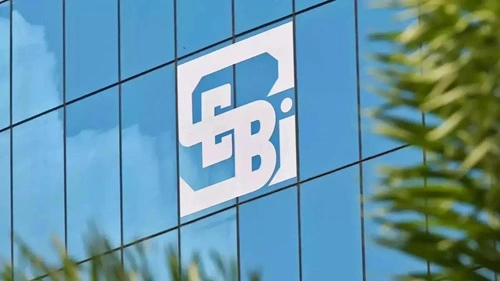The Securities and Exchange Board of India (SEBI) has proposed a new regulation mandating the issuance of shares in dematerialized (demat) form during stock splits. The move aims to enhance transparency, efficiency, and investor protection in the Indian stock market by streamlining processes and reducing paperwork associated with physical share certificates.
The proposal, outlined in a consultation paper released by SEBI, seeks to align the issuance process with global best practices and address potential risks associated with physical shares, including fraud and loss of certificates. The market regulator has invited stakeholder comments on the proposal, signaling its intent to implement the changes after industry feedback.
Understanding Stock Splits

A stock split is a corporate action wherein a company increases the number of its outstanding shares by dividing each existing share into multiple units. This does not affect the company’s overall market capitalization but reduces the share price, making it more accessible to retail investors. For example, in a 2:1 stock split, each shareholder receives two shares for every one share held, with the value per share halved.
Currently, shares resulting from stock splits are issued in either demat or physical form, depending on the investor’s preference or the company’s policies. SEBI’s proposal aims to make the process entirely digital.
Key Highlights of SEBI’s Proposal
- Mandatory Demat Issuance:
- All shares issued during stock splits must be in demat form, eliminating the option for physical share certificates.
- Streamlined Processes:
- The new rule would simplify share issuance, reduce processing times, and ensure quicker credit of shares to investors’ demat accounts.
- Enhanced Security:
- By digitizing the issuance process, the risks of forgery, duplication, and loss associated with physical share certificates will be significantly minimized.
- Investor Convenience:
- Investors would benefit from the ease of handling shares in demat form, including seamless trading and portfolio management.
- Alignment with Global Standards:
- The proposed regulation aligns with international practices, where dematerialization of shares has become the norm in developed markets.
Rationale Behind the Move
SEBI’s proposal is driven by several factors:
- Fraud Prevention: Physical share certificates are susceptible to forgery and misplacement, leading to disputes and financial losses for investors.
- Market Efficiency: Dematerialization ensures real-time credit of shares to investors and simplifies record-keeping for companies and depositories.
- Digital Push: With India increasingly adopting digital solutions across sectors, SEBI aims to modernize stock market processes and enhance investor confidence.
Impact on Stakeholders
- Investors:
- Retail investors will benefit from increased security and convenience, as demat shares are easier to manage, trade, and transfer.
- Long-term investors holding physical shares may need to convert them to demat form, which could initially require additional effort.
- Companies:
- Listed companies will need to ensure robust systems for issuing demat shares during stock splits, potentially involving initial compliance costs.
- Over time, the digital process will reduce administrative burdens and costs associated with managing physical shares.
- Depositories and Brokers:
- Depositories like NSDL and CDSL, along with brokers, will play a critical role in facilitating the transition, ensuring smooth credit of demat shares to investors.
- Regulatory Oversight:
- SEBI’s move will enhance oversight capabilities, enabling better tracking and reporting of share issuances, which is crucial for maintaining market integrity.
Challenges and Concerns
While the proposal has been largely welcomed, certain challenges remain:
- Transition Period: Investors holding physical shares will need time and assistance to convert them into demat form, especially those in rural or semi-urban areas with limited digital access.
- Cost Implications: Depository participants may need to invest in infrastructure to handle the increased volume of demat transactions.
- Awareness and Education: Many retail investors, particularly older generations, may require education and support to adapt to the digital system.
Industry Reactions
The proposal has received positive feedback from market participants. Experts believe it will strengthen investor protection and bring India closer to global best practices. “Dematerialization of shares during stock splits is a logical step forward in digitizing India’s capital markets. It ensures efficiency, transparency, and security for all stakeholders,” said a senior analyst at a leading brokerage.
However, investor associations have urged SEBI to provide adequate transition time and support mechanisms to ensure a smooth rollout of the regulation.
Conclusion
SEBI’s proposal to mandate demat share issuance during stock splits is a forward-looking initiative aimed at modernizing India’s capital markets. While challenges remain in ensuring a seamless transition, the move promises significant benefits in terms of security, efficiency, and investor convenience.
As SEBI seeks feedback from stakeholders, the successful implementation of this policy could pave the way for further reforms in the securities market, reinforcing India’s position as a dynamic and investor-friendly market.

